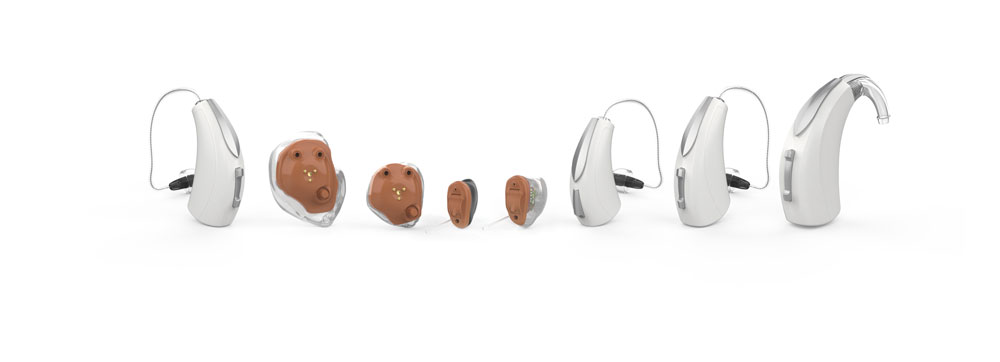Hearing Loss and Cognitive Decline in Older Adults
Connection Between Hearing Health & Cognitive Function in Aging Adults
As we age, changes in our physical and mental health are inevitable. Among these changes, hearing loss is one of the most common issues older adults face, with nearly a third of people aged 65 to 74 and half over 75 experiencing hearing difficulties. Yet, many people don’t realize that hearing health isn’t an isolated concern. It can profoundly impact cognitive function for patients throughout Castle Rock, CO and the Douglas County region. Research has shown that untreated hearing loss is strongly connected to a higher risk of cognitive decline, including conditions like dementia.

Understanding this connection emphasizes the importance of addressing hearing issues promptly and maintaining overall wellness in the later stages of life. Below, the hearing health experts at Castle Rock Ear Associates discuss the connection between hearing and cognitive health for ageing adults. Reach out to our team today to take the first step towards improved hearing health.
What Is Cognitive Function?
Cognitive function is defined as the mental processes that allow humans to acquire knowledge, understand, and interact with the world. These processes include a range of abilities such as memory, attention, problem-solving, language comprehension, reasoning, and decision-making. Cognitive functions are the brain’s tools for thinking, learning, and adapting to new information or situations.
Hearing Loss as a Risk Factor for Cognitive Decline
Research has consistently demonstrated that hearing loss is a significant risk factor for cognitive impairment. A landmark study by Johns Hopkins University found that individuals with diagnosed hearing loss were twice as likely to develop dementia compared to those with a normal hearing ability. For moderate hearing loss, the risk tripled, and for severe hearing loss, the likelihood of dementia increased fivefold. This connection is concerning, especially since hearing loss is highly prevalent but often goes untreated. The consequences of untreated hearing loss go beyond simple communication difficulties. Symptoms like isolation, depression, and reduced mental engagement can exacerbate cognitive challenges.

Mechanisms Behind Hearing, Aging, & Cognitive Health
The exact reasons behind the hearing-cognition link are not entirely understood. However, researchers believe several mechanisms may contribute to this relationship, including the following:
- Cognitive Load Hypothesis – When hearing declines, the brain must work harder to process sounds and understand speech. This increased effort can divert resources from other brain functions, potentially leading to cognitive decline.
- Social Isolation – Hearing difficulties often lead to avoiding social interactions because they’re frustrating or because voices and conversations become too hard to follow. Over time, this withdrawal from social activities can contribute to loneliness, a known factor in cognitive decline.
- Auditory-Cortex Changes – Hearing loss may accelerate changes in the auditory cortex, the area of the brain responsible for processing sounds. Reduced stimulus to the auditory centres can weaken neural pathways. Over time, these changes may extend to other parts of the brain involved in learning and memory, potentially accelerating cognitive decline.
- Shared Underlying Factors – It’s possible that the link between hearing loss and cognitive decline arises from shared biological or vascular factors. For example, poor blood flow to the brain, which can contribute to cognitive issues, might also affect inner ear function, as both rely on a healthy vascular system.
The Benefits of Early Intervention
While the connection between cognitive function and hearing loss may sound dire, there’s good news. Addressing hearing loss early can help mitigate many risks and improve long-term cognitive outcomes.
The Role of Hearing Aids
Hearing aids can dramatically improve quality of life by restoring a person’s hearing ability and allowing them to participate in conversations more easily. But their benefits aren’t limited to better communication. Research suggests that hearing aids may help slow cognitive decline by reducing the cognitive load associated with processing sound, enabling the brain to redirect resources to other tasks.

Beyond Hearing Aids
Early intervention doesn’t always mean jumping straight to hearing aids. Regular hearing check-ups, beginning around age 50, are a proactive step that ensures hearing issues are caught early. For those experiencing mild or moderate hearing loss, interventions like assistive listening devices and strategies to improve communication can make a significant difference. Key lifestyle adjustments, including wearing proper hearing protection in loud environments and managing chronic health conditions, can also help preserve hearing health and reduce the risk of associated cognitive decline.
Practical Tips for Maintaining Hearing & Cognitive Health
Taking steps to protect both hearing and cognitive health is vital as people age. Here are some practical strategies to help maintain wellness in these areas:
- Protect Your Hearing – Avoid loud environmentswhenever possible or use custom hearing protection to minimize noise exposure. Turn down the volume on devices like headphones, televisions, and radios.
- Stay Socially Engaged – Pursue hobbies and activities that involve social interaction, such as joining a club, volunteering, or catching up with friends regularly. It also helps to communicate openly with loved ones about any hearing challenges.
- Keep Your Mind Active – Mentally stimulating activities help maintain neural connections and cognitive function. Programs like Lace AI Pro which has been clinically proven to help improve cognition and working memory, can help patients stay engaged with their world for years to come.
- Prioritize Physical Health – Regular physical activity improves blood flow to the brain and ears. Walking, swimming, and yoga are excellent low-impact options for older adults.
- Act Fast if You Notice Symptoms – If you or a family member begins to notice signs of hearing difficulty, such as frequently asking people to repeat themselves or feeling isolated in group conversations, it’s time to schedule a hearing evaluation.
How Castle Rock Ear Associates Can Help
Experience the transformative power of advanced hearing services at Castle Rock Ear Associates. Our commitment to your auditory well-being extends beyond the ordinary, with a dedicated neurotologist, physician assistant, and team of audiologists ready to provide personalized care. Our team is here for you whether you seek expert guidance on cognitive health and ageing, reliable hearing aid services, or medical and surgical treatments for various conditions.
Contact Castle Rock Ear Associates for Hearing Health Solutions
The connection between hearing, cognitive health, and older adults is a compelling reminder of how interconnected different aspects of our well-being truly are. While hearing loss can get brushed aside as a normal part of ageing, it carries significant risks that extend far beyond the ears, affecting the brain and overall quality of life. Fortunately, early detection, hearing aids, and healthy lifestyle habits can go a long way in preserving both hearing and cognitive abilities. Taking proactive steps with the hearing health providers at Castle Rock Ear Associates can ensure a better quality of life for ageing individuals. We’re happy to serve patients throughout Castle Rock, CO and the surrounding areas, including Douglas County. Contact us today to learn more or schedule an appointment.
